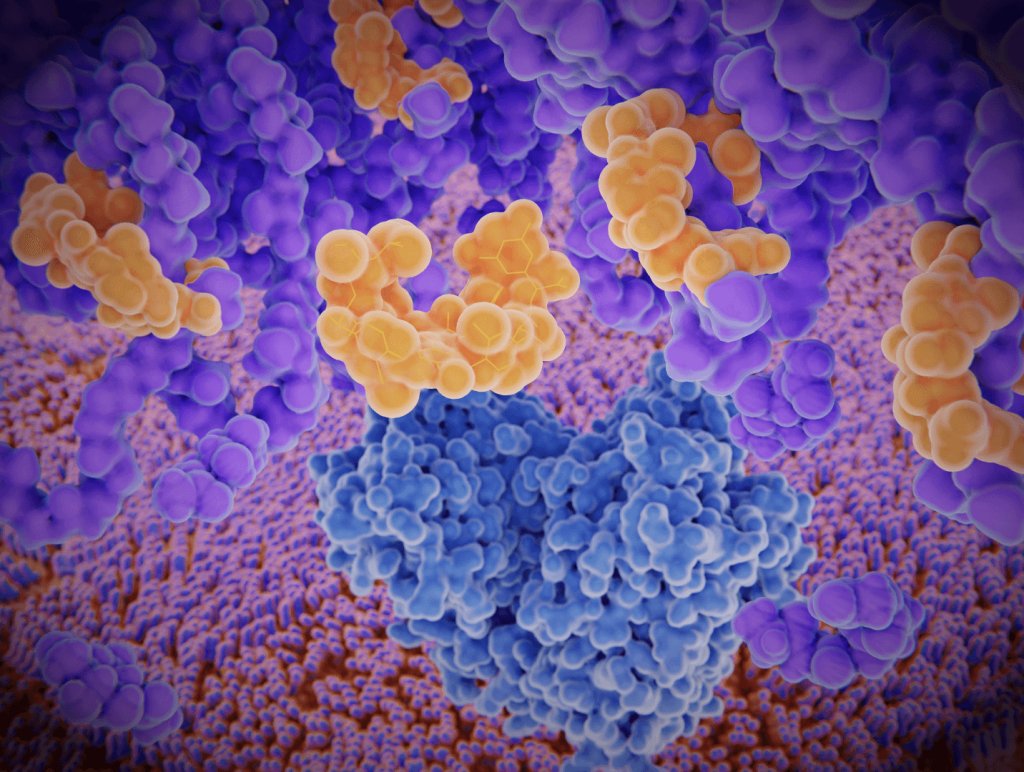
What Are Plant-Based Digestive Enzymes?


What Are Plant-Based Digestive Enzymes?
Here, we’ll outline what these enzymes are and address the following questions:
- What are plant-based digestive enzymes?
- What are the benefits of plant-based digestive enzymes?
- What are the possible side effects of plant-based digestive enzymes?
- And more.
What Are Plant-Based/Vegan Digestive Enzymes?
All life forms depend on and create enzymes. As a result, enzymes may be derived from three different sources:
- Animals
- Plants
- Microorganisms
Plant-based digestive enzymes are enzymes produced by bacteria, fungi, or plants that can help us digest food materials. These are all considered vegan.

For example, the most often utilized plant-based enzyme is bromelain, produced from pineapple and papain from papaya. Many clinical trials show that it can reduce inflammation and exhibits characteristics that alleviate discomfort.
In addition, many pure enzymes from non-genetically modified microbes, particularly Aspergillus oryzae/niger, are microbial enzymes that are generally recognized as safe.
. Plant-based digestive enzymes can be divided into six groups:
- Proteases break down protein found in meat, fish, poultry, eggs, cheese, legumes, and nuts.
- Amylase aids in your body’s digestion and absorption of starches.
- Sugar-digesting enzymes, such as lactases, invertases, and sucrases.
- Lipase assists in fat digestion. When you eat lipase-rich meals, you reduce the workload on your gallbladder, liver, and pancreas.
- Cellulase and hemicellulase break down dietary fibers into shorter carbohydrates and glucose.
- Enzymes digest other plant matter, such as phytase and beta-glucanase.
What Are Plant-Based/ Vegan Digestive Enzymes Good For?
Most animal-based digestive enzyme supplements include enzymes and bile from pigs (porcine source), while a minority may come from cow (bovine) sources. Even rarely are these from organic, pasture-raised, or responsibly-fed animals.
Plant-based digestive enzymes may be best for you if you have food allergies, sensitivities, religious beliefs, or lifestyle choices against consuming these animal products.

Food Allergies And Sensitivities
Pork and beef allergies are uncommon but can arise after a Lone Star tick bite. Pork is more allergenic than beef, so more people are allergic to pork than beef. People allergic to cats can also have antibodies that react to pork.
Many people, including our CEO Matt Gallant, find that pork causes some delayed and not life-threatening inflammatory reactions.
Digestive enzymes tend to be purified and free of allergenic proteins. However, it may be best to avoid pork products, including digestive enzymes from porcine sources, if you’re allergic or sensitive to pork.
Religious And Dietary Restrictions (Kosher And Halal)
You must rely on plant-based enzyme supplements for optimal digestion if you have a religious objection to ingesting pork or bovine products. Plant-based enzymes are vegetarian-friendly, Kosher, and Halal-certified, so virtually anybody may consume them.
Vegan/Vegetarian Diets And Environmental Considerations
Given the ongoing progression of global warming, more people are reducing their meat and other animal-derived food intake and increasing their intake of plant-based foods. If being environmentally conscious is important to you, then you want to ensure that all your supplements, including digestive enzymes, are plant-based.
Following a vegan/vegetarian diet becomes even more important to provide digestive support as plant-based foods are harder to assimilate. Here are five reasons why:
- It helps break down everything. Cell walls with complex polysaccharides and fibers make it hard to access nutrients inside the cells. Also, the plant-based sugars and carbohydrates unfamiliar to our gut can ferment, causing symptoms like bloating and discomfort.
- Break down antinutrients. Antinutrients like phytates can bind to minerals and other nutrients, reducing their bioavailability and absorption.
- Overcome protease inhibitors and digest lectins. Plant-based foods also contain protease inhibitors that inhibit protein digestion and lectins that are hard to digest. So, you need more proteases to fully assimilate your proteins on plant-based diets.
- Minimizing inflammation from foods. Poorly-digested proteins can become gut irritants that cause inflammation or contribute to long-term nutrient deficiencies.
- Maximizing protein usability. Getting enough protein on a plant-based diet can be challenging, especially if you want to build or counteract age-related muscle loss. High-protease plant-based digestive enzymes such as MassZymes can help you optimize your plant-based proteins’ digestion.
Our vegan co-founder, Wade T. Lightheart, qualified and competed in Mr. Universe on 80 grams of protein daily, while his competitors needed well over 200 grams of protein per day. He also recently competed and won at the age of 50. He believes high-quality plant-based digestive enzymes are the secret to succeeding and thriving on a plant-based diet.
Enzymes That Digest More Things Across More Ph Ranges

Our gut bacteria have long helped us digest food matters that we can’t digest, such as fibers and odd sugars. Microbiologists and enzyme scientists have always known that plants, bacteria, and fungi combined produce many more enzymes than mammals.
For example, plant-based digestive enzymes can digest the following, but animal-based enzymes cannot:
- Fibers and odd sugars that make up fermentable oligo-di- and mono-saccharides and polyols (FODMAPs)
- Phytates, bind up minerals and make them not bioavailable
- Pectins
- Cellulose and hemicellulose
- Beta-glucan
- Gluten, specifically by peptidase DPP-IV from Aspergillus
- Different types of starches
By helping to digest these food substances, the plant-based enzymes prevent them from feeding gas-producing bacteria in the colon. So, it helps minimize gas, bloating, and other digestive discomfort.
Full-pH Spectrum Digestive Support
Due to the functional diversity, enzyme biochemists have isolated plant-based enzymes that are active throughout a wide pH range (presumably between 3.0 to 9.0). By including active plant-based enzymes throughout this pH range, our plant-based digestive enzymes support digestion both in the stomach’s low-pH environment and the intestine’s relatively high-pH environment.
Animal enzymes, however, only work at either end of this pH range. However, people who struggle with suboptimal digestive health tend to have gut content that is not acidic or alkaline enough due to low stomach acid.
Pepsin, an animal enzyme, works best in acidic conditions (pH 2.0 to 3.0). Your stomach needs to make enough stomach acid to activate pepsin. Once food moves into the small intestine, the acidity of the chyme activates alkaline and enzyme secretions. In the small intestine, pancreatin, trypsin, and chymotrypsin are only maximally active in the alkaline environment of the small intestine (pH 7.0 to 9.0).
Therefore, we believe that providing plant-based digestive enzymes that can work across the gut pH range and digest common gut irritants is the best way to maximize your digestive capacity. This is why all of our digestive enzyme products are full-spectrum.
Systemic Enzymes
Systemic enzymes are plant-based enzymes that support digestion and bodily functions. They can get absorbed into the bloodstream, breaking down inflammatory proteins and debris, and providing whole-body benefits. For example, some can help you recover from exercise, while others improve cardiovascular health. Check out our systemic enzymes article here to learn more about systemic enzymes.
Aside from supplements, you can also get naturally-occurring digestive or systemic enzymes from raw foods. They typically perform the same function as digestive enzymes, but your system does not generate them; you consume them. These enzymes exist in fresh, raw, and uncooked foods– especially fruits, vegetables, and unpasteurized fermented foods. Raw dairy, meat, and fish also contain enzymes, but they may present a higher risk of foodborne illness, so you need to source them carefully.
Do Plant-Based Digestive Enzymes Have Side Effects?

While digestive enzymes are generally safe and helpful supplements, certain people, notably those taking drugs that may interact with digestive enzymes, may have negative effects. On the other hand, taking them in large doses may also cause adverse effects. Therefore, if reducing the amount does not help, you should not stop taking the supplements.
Some side effects include:
- Nausea
- Digestive irregularities
- Abdominal cramping
- Stomach discomfort
- Headache
- Rash
- Dizziness
- Low Blood Sugar
Plant-based enzymes are contraindicated for:
- Pregnant women
- Anyone using blood thinners or about to get surgery
- Anyone with stomach or duodenal ulcers
- Anyone with known allergies to the ingredients
If you have any prior medical concerns, you should see a doctor before using enzyme supplements.
Can Mold Allergy Or Sensitivity Be An Issue With Plant-Based Fungal Enzymes?
Most plant-based digestive enzymes are highly purified. Supplement vendors in the U.S. are also legally required to send every batch of their products to a third-party lab to test for potency and purity. Therefore, you can be assured that our products are tested free of mycotoxins or dangerous fungi. However, fungal enzyme products may not be right for you if you’re severely allergic or extremely sensitive.
Conclusion
Nowadays, there are many options for digestive enzymes, and they’re not all created equal. However, plant-based digestive enzymes can provide many unique benefits that animal-derived enzymes can’t. For example, plant-based enzymes can work across all pH levels in the gut and digest all food matters, making them more effective at optimizing digestion.
What has been your experience with plant and animal-based enzymes? Please share in the comments below.
References
- Brien S, Lewith G, Walker A, Hicks SM, Middleton D. Bromelain as a treatment: A review of clinical studies. Evid Based Complement Alternat Med. 2004;1(3):251-257. doi:10.1093/ecam/neh035
- Meat allergy. ACAAI Public Website. Published October 30, 2020. Accessed September 2, 2022. https://acaai.org/allergies/allergic-conditions/food/meat/
- Commins SP, Platts-Mills TAE. Delayed anaphylaxis to red meat in patients with IgE specific for galactose alpha-1,3-galactose (alpha-gal). Curr Asthma Rep. 2013;13(1):72-77. doi:10.1007/s11882-012-0315-y
- Untersmayr E, Jensen-Jarolim E. The role of protein digestibility on outcomes. J Clin Immunol. 2008;121(6):1301-1308; quiz 1309-1310. doi:10.1016/j.jaci.2008.04.025
